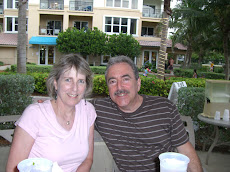
The matter of time leads to looking at the universe, and then, of course the science and the philosophy of science. I am not trained in the study of philosophy or as a scientist, but I like to have a look when I am thinking about what time really means. You cannot help but bump into key figures in the 20th Century who looked a science and its meaning. The following is a glimpse [and very oversimplified] into a major thinker of our time:
Sir Karl Popper finally solved the puzzle of scientific method, say some, which in practice had never seemed to conform to the principles or logic described by the important philosopher of science Francis Bacon. Instead of scientific knowledge being discovered and verified by way of inductive generalizations, leaping from perceptual data into blank minds, in terms that go back to Aristotle, Popper realized that science advances instead by deductive falsification through a process of "conjectures and refutations."
It is imagination and creativity, not induction, that generates real scientific theories, which is how Einstein could study the universe with no more than a piece of chalk, so states a
summary of Popper's work. Experiment and observation test theories, not produce them. Some philosophers, like Kant, had come close to recognizing it.
It is still subject to some dispute, though mainly from those who misunderstand the rejection of induction or who demand positive epistemic reasons for crediting theories that are derived negatively, by
falsification.
But what holds so much intrigue, in my mind, is the continuum from science to philosophy to science many key thinkers take in their lifetimes. Popper spent a lot of time studying what he called ‘methodological individualism’: rules to the effect that the behavior and actions of collectives should be explained by the behavior of human individuals acting appropriately to the logic of their social situation as best they can and as best they see it.
According to methodological individualism, social theories are tested not by historical predictions, which are little more than prophecies, Popper argues, but by attempts to invent institutions that correct social faults by social engineering. Man-made social institutions are hypotheses in action, he said.
He said to watch for ‘the Oedipus effect’, the way in which a prediction about the future becomes an altering factor in the situation as human beings are aware of it, thus ‘interfering’ with the outcome.
Okay, so I have wended my way back around to time and the future [sort of].
According to the Routledge Encyclopedia of Philosophy, Popper as a philosophy instructor "displayed ambivalence: philosophical problems emerge from science, so the best preparation was an education in a first- order subject, preferably scientific. He regularly displayed an astonishingly quick intuitive grasp of the logic of any position presented to him, even from the most meagre of clues, and an eagerness to strengthen and elaborate on it before setting about criticizing it.
He thus exemplified the values he advocated: intellectual seriousness, personal responsibility and disinterestedness, that is, doing justice to ideas regardless of their temporary embodiment. Any attempt to map Popper’s ideas into traditionally oriented discussions risks misrepresentation. The frequent practice of reconstructing Popper’s philosophy timelessly, plucking materials from works published as far apart as fifty years, flies in the face of his emphasis on the structuring role of problems and problem-situations in all intellectual activity, particularly inquiry. To do justice to the originality and creativity of his work, scholarship needs in the first instance to respect its intellectual context of production."
 Writing miles
Writing miles
 Once more I must slow down my pacing
Once more I must slow down my pacing


